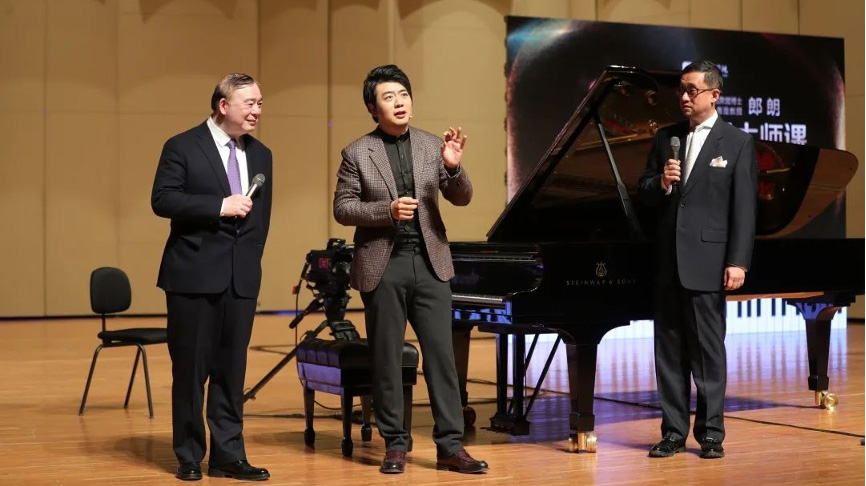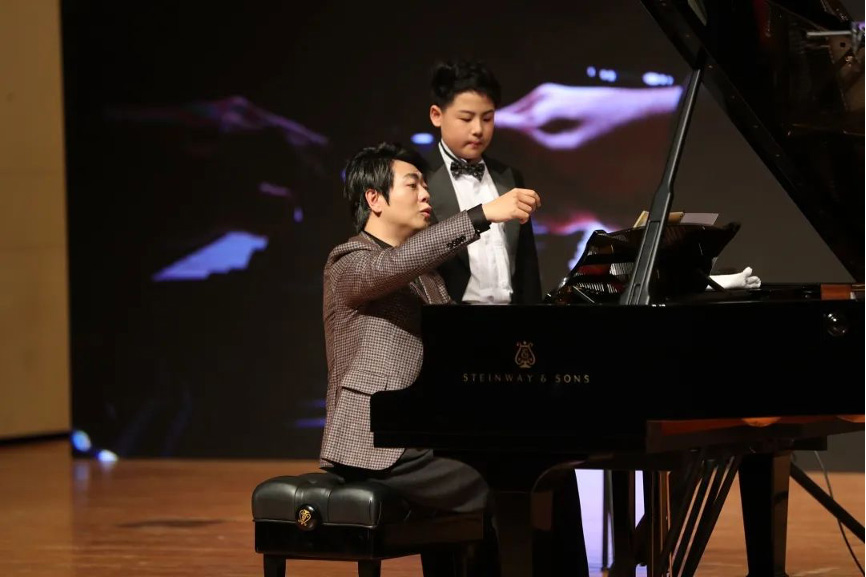On November 15th, Lang Lang returned to Central Conservatory of Music to present a passionate and dynamic piano master class to the faculty and students of his alma mater, as well as to nationwide viewers watching the live broadcast online.

During the master class, Li Tianyao, a sixth-grade student from the affiliated primary school of the Central Conservatory of Music, performed Chopin’s “Bolero in C Major Op.19.” Sun Fansen, a first-year student from the affiliated secondary school, played Chopin’s “Barcarolle in F-sharp Major, Op.60.” Mao Xuanyi, a second-year graduate student from the piano department, performed Stravinsky’s “Petrushka.”
Lang Lang provided meticulous and patient guidance on each student’s performance. His lively and humorous commentary, along with his expert demonstrations, not only inspired the three students but also earned enthusiastic applause from the audience, making the session captivating.

During the master class, Lang Lang also interacted with the live and online audience, addressing various questions. Here are some of the questions and his responses:
Q: What is your most memorable experience from practicing the piano as a child?
A: Sometimes, it was not knowing what to practice. While practicing the piano should not have a utilitarian purpose, it should have direction and goals. When I run into a deadlock, feeling stuck in one way of playing, it’s important to listen more and seek new resources—such as listening to peers’ performances or searching online—to discover new approaches.
Q: How can one improve practice efficiency?
A: First, focus on solidifying the basics. A strong basis makes further progress much easier and accelerates skill development. Second, plan practice time effectively, allocating specific periods for different aspects of practice. Especially when practice time is limited, make sure to use the time wisely.
Q: What should you do if a child cannot engage or persist in practicing?
A: Cultivate an interest in practicing and stimulate the child’s emotions. In a competitive environment, interest is more easily sparked. Therefore, listening to others’ performances can help recognize one’s own gaps compared to others.
Q: How to handle nervous before going on stage?
A: Nervous stems from two main issues: insufficient practice or psychological factors. To address stage fright, ensure ample practice and simulate performances before the actual event by inviting classmates and friends to participate, which helps adjust to the performance atmosphere. Additionally, with sufficient practice, focus on relaxing and trusting yourself. Rest well before the performance and review the score to maintain a calm and relaxed state.
At the end of the master class, Lang Lang encouraged all music-loving students to embrace challenges and pursue their dreams. He wished everyone success in achieving their musical aspirations!
